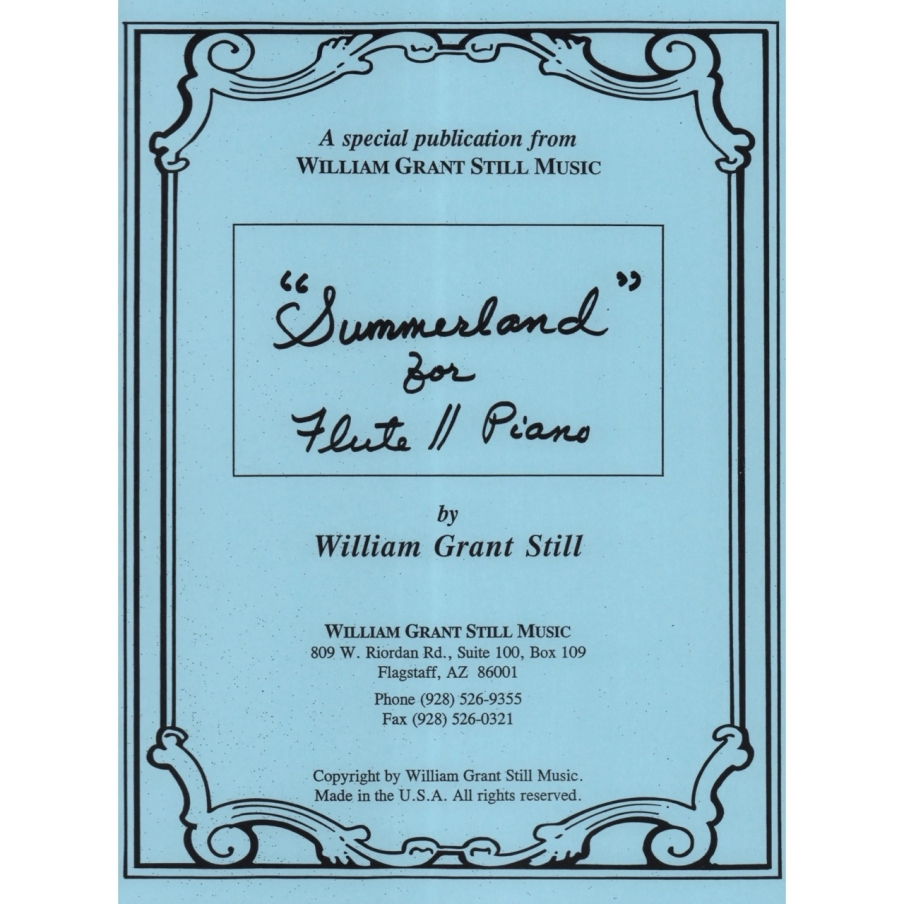



| Arrangement | Flute and Piano |
|---|---|
| Product Format | Sheet Music |
According to the composer's daughter, 'Summerland' is his vision of the Afterlife. It was written as the central part of a 3 part suite by one who has been described as the 'Dean of Afro-American Composers'
William Grant Still's early interest in music was encouraged by listening to the opera recordings bought for him by his stepfather, at home in Little Rock, Arkansas, USA. At 16 he entered Wilberforce University, Ohio where he gained experience in playing various instruments and conducting, besides a degree. He continued his studies at Oberlin Conservatory and privately, for composition, with George Chadwick and Edgar Varèse. Still then worked as an orchestral player and orchestrator with some of the big names in Jazz, Vaudeville and Dance Band music including W.C.Handy, Sophie Tucker, Paul Whiteman and Artie Shaw.
1931 saw the première of Still's 'Afro-American' Symphony, the first time a work by an African-American composer had been performed complete by a major orchestra. Until 1950 it was the most popular symphony by any American composer and had been performed widely across the States and Europe. He went on to compose four more symphonies, four ballets, nine operas, thirty choral works, chamber music and instrumental solos so that Still's catalogue had reached a total of nearly two hundred works by the time he died, helping to earn him the title "Dean of Afro-American Composers
'Summerland' is the second part of a three part suite for piano titled 'Three Visions', dated 1935. The composer later arranged this part for chamber orchestra, and later still it seems, made this arrangement for flute and piano. The suite tells the story of the human soul after death - Judgement and the threat of damnation in the first vision called 'Dark Horsemen'; promised beauty of the Afterlife in Vision Two - 'Summerland'; and spiritual perfection after a progressive cycle of reincarnations in 'Radiant Pinnacle'. The tranquillity of the opening fifteen bars lead into a four bar piano bridge to a change of key at bar nineteen and a stronger sense of movement. At bar thirty-nine the original key returns and the piece ends in the same mood as it began. There is a gentle reminder of the composer's involvement with jazz throughout.